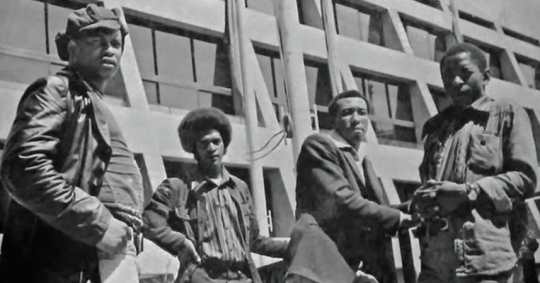|
As UK-based Matsuli continues its journey to unearth music from South Africa’s 1970’s-era funk, jazz, and disco hybrids, One Night in Pelican serves as both primer for and extension of what we know about Soweto’s fertile scene. As it turns out, the Pelican, a venue that opened in 1973, located in an industrial park near railways and warehouses, and run by bootlegger Lucky Michaels, was Soweto’s first club. As such, it had its own house bands as well as a VIP-section full of the city’s cross section of celebrities and hot shot musicians. And while the Pelican’s weekend sounds focused on top 20 hits, the rest of the week was open for jamming, which is where this collection comes in.
As it turns out, a dozen or more name players in South Africa’s jazz and pop scene gathered for these weeknight sessions and they included trumpeter Stompie Manana, who claims to have taught Hugh Masekela. While this album is not a live recording of any actual night at the Pelican, what it is instead is compilation of Soweto soul, funk, disco, and jazz, often blended in a way as to squeak between styles. Featured here are musicians who either cut their teeth at the Pelican and subsequently formed bands out of the sessions, or at least took cues from hours-long jams and sprinkled this knowledge in their music. Featured are cuts from various LPs from Dick Khoza, Ensemble Rhythm and Art, and Abacothozi, whose Night in Pelican album gave this collection its moniker (and its cover). Their offering here, the title track from that record, is an extended groove featuring plenty solos, pinned down by organ and horn lines that reveal harmonies of high notes pitted against low ones that could come from nowhere else but South Africa.

|
|
Yet, much of what’s on offer here wouldn’t sound out of place at any similar club in the US in 1970s, as tracks are driven by jagged guitar riffs, shimmering Fender Rhodes piano lines, syrup-thick bass, and disco rhythms that no doubt packed dance floors. The Black Pages’ “There Goes” is as fine an example of this sound as anything else on the collection. The Headquarters’ “Moshate” features dub effects, an occasional baritone-voiced MC and classic disco-era strings. One would be forgiven for assuming this was a Gamble and Huff production. Almost all of these tracks are instrumental, extended jams that rival any dance floor sounds coming out of New York City at the time, featuring as they do impeccable musicianship and rhythms that converse directly with the butt.

|
|
Of special note is Dick Khoza and the Afro Pedlars’ “Chapita,” which is as close as this record gets to straight-up funk. For nearly 10 minutes, this track revels in a repeated guitar lick that serves as the foundation for a chant of the song’s title, an alternating two-note horn line, and other ebbs and swells of pure groove.
The collection also contains a booklet with quotes from surviving musicians and photos that bring out a certain confident innocence as musicians who were at the height of discovering each other.
|
